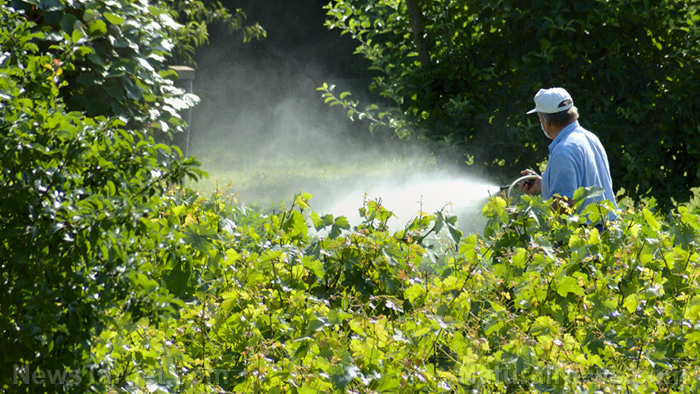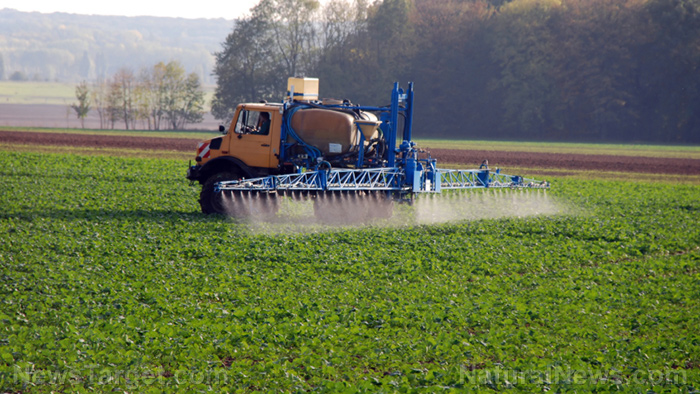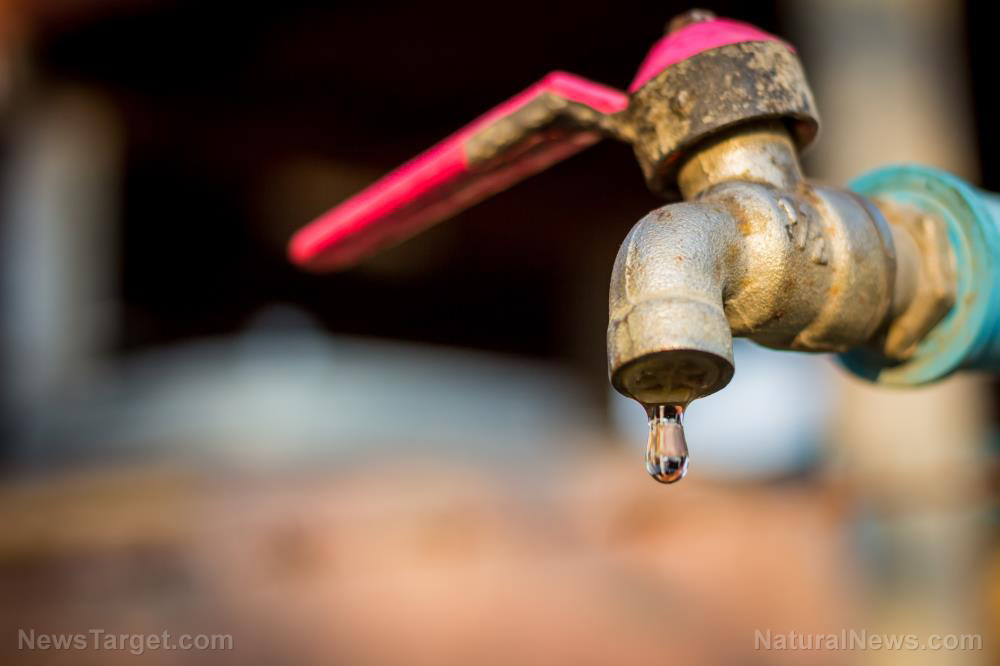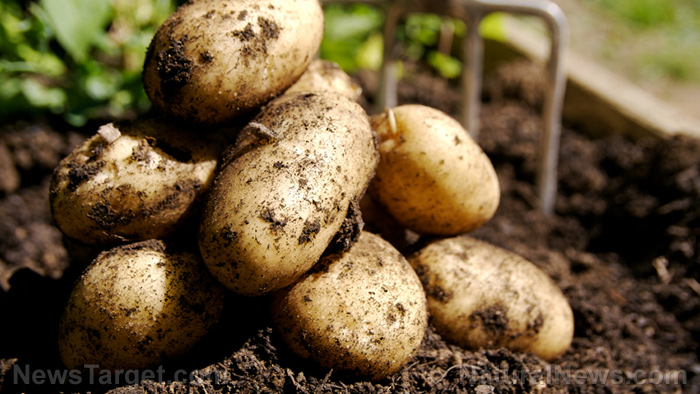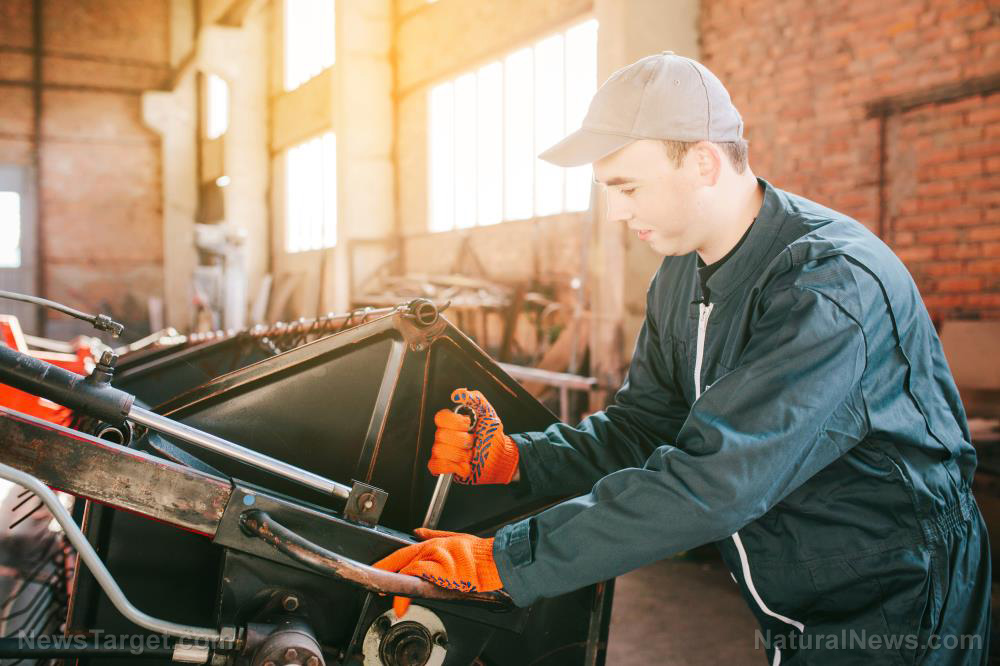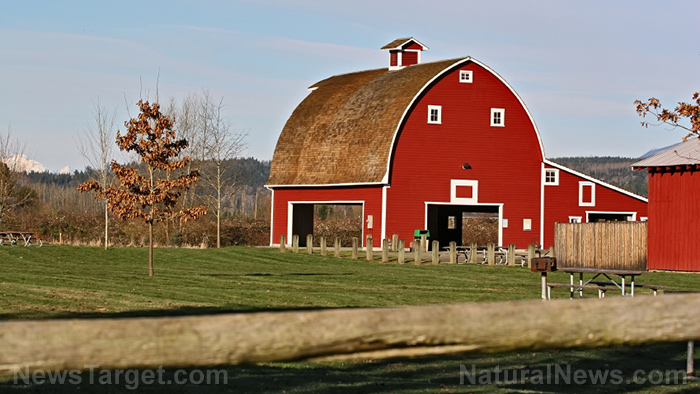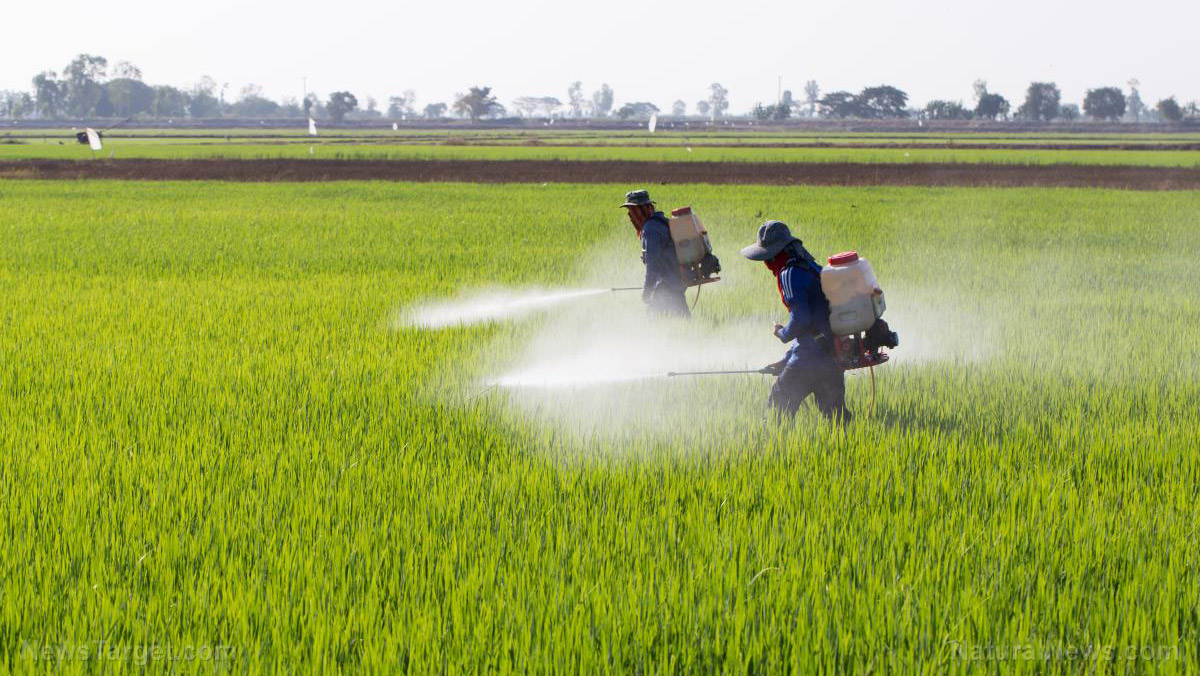Farmers struggle to find more space to grow crops, Biden makes the situation worse
10/21/2021 / By Arsenio Toledo

Farmers say the surge in demand for food means they need more space to grow crops to meet the demand. But their situation is about to get even more dire as President Joe Biden pushes to increase the use of renewable fuel.
Dan Basse, president of the agriculture consultancy firm AgResource Co., warned that Biden’s climate agenda is about to trigger a boom in the use of biofuels from crops like soy and corn at a time when farmers are already under extreme pressure.
A lot of states in America prevent agricultural companies from using imported feedstocks to use as biofuels. Basse believes this regulation means more farmers will be tempted by the lucrative market to convert their fields to grow soybeans or corn instead of other crops.
Bill Thomson, senior trade editor for Agri-Pulse, believes corn and soybean farmers will soon be providing their feedstocks to the aviation industry to supply it with biofuels.
If the United States wanted to shift to growing more crops to use as biofuels without sacrificing food production, Basse said the country’s farmers would need an additional 40 million acres of land.
“We need more acres,” he said. “I don’t think there is any way America can shift 40 million acres to soybeans from other crops, but you’re going to see some sort of shift.”
Basse warned that the planted acreage in the U.S. may have reached a ceiling. If this is the case, incentivizing farmers to convert their fields to grow crops for use as renewable fuels could lead to future food shortages. America’s other option would be to heavily rely on crops grown overseas, mostly in South America, Africa, Eastern Europe and Asia.
If Biden doesn’t back down from his climate agenda, America will either have more people starving due to a lack of food or the country will be dependent on other nations.
Farmers already struggling with equipment shortage
Biden’s climate alarmism will only put America’s farmers under more pressure to grow food. They are already dealing with an unprecedented shortage of farm equipment. Many farmers are concerned about not getting the equipment they need in time for harvest. (Related: Parts shortage hitting farmers hard as supply chain crisis expected to persist well into 2022.)
“Crops can be damaged if they are planted or harvested late, and the insurance provided by the [Department of Agriculture] requires that seeds are put in the ground and produce is pulled by a particular date to be fully insured,” wrote journalist Phil McCausland for mainstream media outlet NBC News.
Matt Ackley, chief marketing officer for auction company Ritchie Bros. Auctioneers, said that prices for farm equipment are “growing considerably.” Since last year, the price index for tractors has increased by 19 percent. The price index for parts and other heavy machinery has also increased substantially.
Ritchie Bros. Auction’s website is one of the largest auction websites in the world “dedicated to the sale of heavy equipment.”
According to Ackley, the company’s website has attracted over 161 million visitors and 1.3 million bidders in 2021, an increase of 15 and 19 percent respectively from the same time a year ago.
Ackley pointed out how desperate the situation is for farmers by telling a story about a tractor that was struck by lightning earlier this year. An insurance company put the tractor up for auction. As of Monday, it got 393 bids from prospective buyers who want to break it down for spare parts for their farm equipment.
“As you get any type of disruption to an already stretched supply chain, you get quite a significant backlog,” said Ackley. “People are fighting vigorously for what’s left.”
Joel Everett, the owner of an auction house in Iowa, recently experienced firsthand the desperation many farmers are dealing with when a lightly used tractor manufactured in 2009 sold for $143,000. The tractor was bought new for $109,000.
Everett explained that a lot of farm equipment, particularly used tractors, are selling for 30 to 50 percent more than they did two years ago.
“It’s been unreal,” said Everett. “Our last sale was the biggest dollar sale we ever had, and we’re fixing to have another in three to four weeks that’s going to blow that one away.”
Everett mentioned that he knows many farmers in his area who are still waiting on farm equipment they purchased nearly a year ago that still hasn’t been delivered. Many farmers had to purchase other equipment just to get through the season. Everett said some farmers were buying two of the same farm equipment, usually tractors, and cannibalizing one of them for parts.
“Our supply chain is just in shambles,” he said.
Tim Riley, an organic farmer in western Kansas, said he and many of his neighbors had to get creative because of the parts shortage. They were repairing their own equipment and finding workarounds for the parts they can’t fix.
“Some of the electronic parts have been really hard to get for the guidance systems on some of these tractors,” said Riley. “It’s really hard to do anything with how highly computer-driven they are already, so that’s a problem.”
When Riley’s guidance system on his tractor broke down, he was able to get help from his neighbors who dismantled a GPS from one of their rigs to use on his.
Riley’s problem has been compounded by the fact that John Deere, one of the country’s largest manufacturers of heavy equipment, is dealing with a labor crisis as its workers are currently on strike. Even before the strike began, the company was already behind in production.
“Coming into our spring season, we really need a new tractor, but they told us that we won’t be able to get it for a year to a year and a half,” said Riley. He had no choice but to purchase a used tractor.
Learn more about how President Joe Biden is making the supply chain crisis in America worse by reading the latest articles at JoeBiden.news.
Sources include:
Tagged Under: agriculture, big government, biofuel, climate agenda, equipment shortage, farm equipment, food production, food shortage, food supply, fuel, green tyranny, harvest, Joe Biden, supply chain, supply chain crisis
RECENT NEWS & ARTICLES
COPYRIGHT © 2017 HARVEST NEWS

